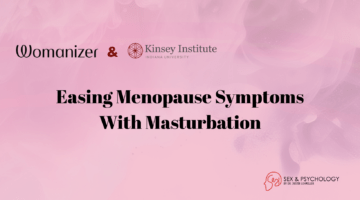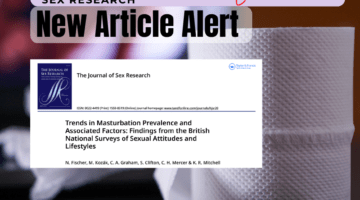How PCOS Impacts Women’s Sexual Functioning
October 23, 2025 by Merissa Prine
Polycystic ovary syndrome (PCOS) is one of the most common hormonal disorders affecting women of reproductive age. In fact, the World Health Organization has stated that PCOS affects up to 13% of women of reproductive age, and that up to 70% of women who have PCOS are not diagnosed. While PCOS symptoms can manifest differently in different women, it is the leading cause of anovulation (a condition in which the ovaries fail to release an egg) and infertility.
PCOS and Sexual Functioning
PCOS affects more than just fertility and hormones—it can also profoundly impact sexual health and functioning. Research shows women with PCOS commonly report lower levels of sexual satisfaction, reduced lubrication, arousal issues, and diminished orgasm frequency compared to those without the condition [1]. These sexual impacts are often not addressed as part of the diagnosis or treatment of PCOS [2]. Recognizing this connection is key to supporting a full, intimate life for those navigating PCOS.
In a recent meta‑analysis of 40 studies on sexual functioning in women with PCOS, the authors emphasize that sexual functioning should be a key component of PCOS follow‑up and care [3]. The researchers included women both with PCOS (N = 4999) and without PCOS (N = 3925) so that comparisons could be made between the two groups. For today’s blog, we’ll be highlighting some of the key findings.
Women with PCOS had significantly lower sexual functioning. The pooled results between studies demonstrated lower female sexual functioning scores in those who had PCOS when compared to those who did not, these differences were prevalent across all five subdomains, with women who had PCOS reporting:
- Lower sexual arousal
- Less lubrication
- More difficulty with orgasm
- Lower levels of sexual satisfaction
- More sexual pain
- Less sexual desire
In short, while PCOS is most often discussed in the context of fertility and hormones, the evidence makes clear that sexual health and function should not be overlooked. This meta‑analysis of 40 studies found that women with PCOS reported challenges across desire, arousal, lubrication, orgasm, satisfaction and pain, all of which underscores the breadth of impact. Recognizing and openly addressing sexual functioning as part of routine PCOS care offers an opportunity to support fuller well‑being and intimate connection, not just reproductive outcomes. By integrating conversations about intimacy, body image, self‑esteem and sexual function into PCOS follow‑up, healthcare providers—and women themselves—can move towards a more holistic and empowered approach to living with PCOS.
For more information about PCOS and how to manage it, you can explore the resources below, which link directly to their PCOS summary pages and fact sheets:
If you have a sex question of your own, record a voicemail at speakpipe.com/sexandpsychology to have it answered on the blog or the podcast.
Want to learn more about Sex and Psychology? Click here for more from the blog or here to listen to the podcast. Follow Sex and Psychology on Facebook, Twitter (@JustinLehmiller), Bluesky, or Reddit to receive updates. You can also follow Dr. Lehmiller on YouTube and Instagram.
Image made with Canva.
References:
[1] Pastoor, H., Timman, R., de Klerk, C., M Bramer, W., Laan, E. T., & Laven, J. S. (2018). Sexual function in women with polycystic ovary syndrome: a systematic review and meta-analysis. Reproductive Biomedicine Online, 37(6), 750–760. https://doi.org/10.1016/j.rbmo.2018.09.010
[2] Fliegner, M., Richter-Appelt, H., Krupp, K., & Brunner, F. (2019). Sexual function and socio-sexual difficulties in women with polycystic ovary syndrome (PCOS). Geburtshilfe und Frauenheilkunde, 79(5), 498–509. https://doi.org/10.1055/a-0828-7901
[3] Bachega, F. S., Turri, J. A. O., Baracat, M. C. P., Simões, R. S., Maciel, G. A. R., Lobo, R. A., Soares, J. M., & Baracat, E. C. (2025). New comprehension on polycystic ovary syndrome and sexual function: a systematic review and meta-analysis. Journal of Sexual Medicine, 22(9), 1612–1628. https://doi.org/10.1093/jsxmed/qdaf163

Dr. Justin Lehmiller
Founder & Owner of Sex and PsychologyDr. Justin Lehmiller is a social psychologist and Research Fellow at The Kinsey Institute. He runs the Sex and Psychology blog and podcast and is author of the popular book Tell Me What You Want. Dr. Lehmiller is an award-winning educator, and a prolific researcher who has published more than 50 academic works.
Read full bio >


